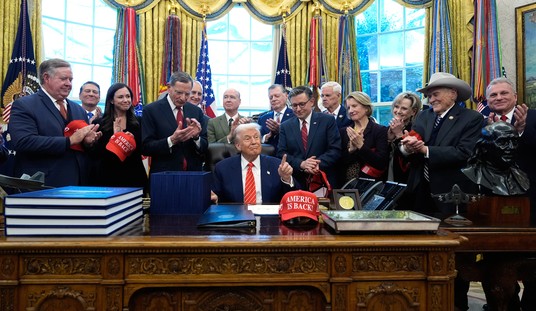Colorado’s orchestrated shift from 46 years of Republican rule to a progressive “utopia” where Democrats can use the state as a testing ground for policy gained more ground today:
Democratic Gov. John Hickenlooper signed legislation Monday to grant in-state tuition for students in the country illegally who graduate from Colorado high schools.
The in-state rate is one-third the amount out-of-state students pay.
It’s called the ASSET bill, which stands for Advancing Students for a Stronger Economy Tomorrow.
To qualify for in-state tuition under the new law, the students are required to have attended a Colorado high school for three years and have to apply to a college in our state within 12 months. Graduates who have been in Colorado continuously for 18 months are also eligible to receive the in-state tuition rate.
Out-of-state students and those citizens in Colorado who don’t meet in-state tuition requirements are understandably upset: this means they will shoulder the burden of higher costs so those who break the law get a break.
While the DOJ prosecutes states like Alabama who simply want to enforce their existing laws, they turn a blind eye to the egregious breach of law carried out by Colorado and now 13 other states: the discriminatory tuition rates are against federal law, signed into effect by Clinton. To summarize:
Federal law prohibits state colleges and universities from providing in-state tuition rates to illegal aliens “on the basis of residence within the State”—unless the same in-state rates are offered to all citizens of the United States. Today, 12 states are circumventing this federal law, and the legal arguments offered to justify such actions are untenable, no matter what other policy arguments are offered in their defense. Because at least one federal court of appeals has held that there is no private right of action under the specific statute in question—§ 1623 of the Illegal Immigration Reform and Immigrant Responsibility Act of 1996—the U.S. Department of Justice must enforce this statutory provision against states that have violated federal law. Yet even as it sues states like Arizona and Alabama for trying to assist the enforcement of federal immigration law, the U.S. government refuses to sue states that are incontrovertibly and brazenly violating an unambiguous federal immigration law. Such inaction is unacceptable: The President and the Attorney General have an obligation to enforce every provision of the United State’s comprehensive federal immigration regulations—including the federal law prohibiting state colleges and universities from providing in-state tuition rates to illegal aliens “on the basis of residence within the State.”
In 1996, Congress passed—and President Bill Clinton signed into law—the Illegal Immigration Reform and Immigrant Responsibility Act (IIRIRA). [i] Section 1623 of this federal statute prohibits state colleges and universities from providing in-state tuition rates to illegal aliens “on the basis of residence within the State” unless the same in-state rates are offered to all citizens of the United States. [ii] Today, 12 states [iii] allow individuals who are in the United States illegally to pay the same in-state tuition rates as legal residents of the states [iv]—without providing the same rates to others. By circumventing the requirements of § 1623 these states are violating federal law, and the legal arguments offered to justify such actions are untenable, no matter what other policy arguments are offered in their defense.
Several things give laws strength, among them the willingness to apply them equally and fairly. This administration has repeatedly proven it is unwilling to do either, nor is it willing to allow state and local law enforcement to do the same.
Due to the preferential treatment of one group over the other, it will be interesting to see how legal citizens barred from this favorable treatment will react to such discrimination. Will they bring suit against the state of Colorado (along with students in other states dealing with the same violation of federal law)? Against the university?













Join the conversation as a VIP Member